By Ejup RAMADAN
Memorie.al / The Albanian people joined the anti-fascist coalition in the Second World War, giving their contribution, along with other participating countries. Realignment on this side was the only solution for the Albanians, in defense of Albanian interests. The political forces that engaged in this direction, contributed to not closing the path of aspirations for a free and ethnic Albania, which was also a program of the renaissance and which was also included in the decisions of the Bujan Conference. Why did the Communist Party of Yugoslavia attack the decisions of the Conference and why did the Albanian Communist Party remain silent when deciding on the fate of Kosovo?! Kosovo is only one of the Albanian territories, while the Albanian state, after 1913, represented less than half of these territories. The problem of the lands and the Albanian people, during the years of the Second World War, was large and complex, which has not been addressed properly, not only by the offices of European diplomats, but also by world historiography, especially the Slavic one.
The Albanian people are the only ones in the world who, after liberating their lands with their own forces, without the participation of foreign countries, helped to annihilate the fascist armies in Montenegro, Sanjak, Bosnia and Herzegovina, Croatia and Slovenia. Albanians also fought against the Chetnik forces in 1944-’45, they were also killed in the back, by the Slavic communist superiors of the Yugoslav Army, who had gone to war against the Italian and German troops in April 1941, then they were massacred in Tivar, disappeared on the Srem Front, by order of the General Staff of the Yugoslav Army, were killed in Ferizaj, Drenica, Tetovo, etc.
The events that preceded the Bujan Conference
The National Liberation Conference for Kosovo and the Dukagjin Plain (Bujan Conference) was held at a time when the anti-fascist liberation war was progressing rapidly and at the same time the need for the creation of a leading body in Kosovo was felt. The capitulation of Fascist Italy, in September 1943, laid before the political forces in Kosovo the need for the formation of the Anti-Fascist Council, as the highest political body.
The Bujan conference was organized on the initiative of the Provincial Committee of the Communist Party of Yugoslavia for Kosovo and the Dukagjin Plain. For its maintenance, the Kosovo Albanians took as a basis the decisions taken by the leading bodies of the War in Yugoslavia, especially the meeting of the KANÇJ (National Liberation Antifascist Council), held in Bihaç, in November 1942. In accordance with the decisions of at these meetings, the peoples of Yugoslavia, among them the Albanians had to form the national-liberation councils. The Kosovo Albanians also took as a basis the statements of the Yugoslav political leaders, who spoke about equality between the peoples and the fact that the Albanians, until that time, were treated as a nation. Time proved that all these statements were just the demagoguery of the Yugoslav leaders.
Albanians were not invited to Jajce
An important moment for the PKJ’s attitude towards the Albanians is the decisions of the second meeting of the KANÇJ, which was held in Jajce on November 29-30, 1943, where 146 delegates from all the provinces of Yugoslavia participated, where the Albanians did not participate because they were not invited. In this meeting, the creation of Yugoslavia on a federal basis was decided, where complete equality of Serbs, Croats, Slovenians, Montenegrins and Macedonians was ensured, and the national-liberation councils of these peoples were also recognized as the highest political bodies.
The Albanian issue was not mentioned at all in this meeting, while the status of Kosovo was not determined. Also, no representative of the Communist Party of Albania was invited, despite the fact that Yugoslav emissaries took part in meetings of Albanian communists, and in some cases they had the main speech, as was the case with Milad Popovic and Dushan Mugosha, Svetozar Vukmanovic – Tempon , etc., etc.
Hiding decisions from the Russians, the Comintern and the general public
Some researchers are of the opinion that the decisions of the KANÇJ on the creation of the Yugoslav federation were not known to the general public. They are based on the statement of the member of the Political Bureau of the Central Committee of the Communist Party of Bulgaria, Cola Dragoicheva: “The decision of the Central Committee of the Communist Party of Yugoslavia to establish the Yugoslav Federation came to us late, in the middle of the spring of 1944.” Also the statements of the Yugoslav leaders that the meeting was prepared in secret and that the decisions were hidden from the Russians, the Comintern and the general public.
In the historical literature, the non-participation of Albanians in this meeting is explained by the fact that PKJ and PKSH saw the Kosovo problem as an issue that would be resolved by them after the end of the war. After all these findings of the historians, it appears that the Albanians did not recognize the decisions of the second meeting of the KANÇJ, since they were against the interests of the Albanian people of Kosovo.
The Atlantic Charter as the basis of the Conference
It is important to mention that the Bujan Conference was held after the second meeting of the KANÇJ, after the decision of the Albanian Parliament, for the union of the Albanian lands in Yugoslavia with the new Albanian state, which was formed after the capitulation of the former Yugoslavia, after The Second League of Prizren and after the Mukje Meeting. These meetings preceded the Bujan Conference, which was based, separately, on the Atlantic Charter, formulated on August 14, 1941, by the great powers, where in the third point it was stated: “The right of all peoples, to choose the form of government and sovereignty and self-government, to return to those who were taken from them by force”.
On November 19 to 30, 1943, we have the Moscow Conference, with the participation of England, the USA, the Soviet Union and China, where the need to form a general international organization based on the sovereign equality of all peoples was felt. , open for the membership of all countries, for the preservation of international peace and security, etc. In the sixth point of the Declaration, it is stated: “After the end of the conflict, the Great Powers will not use their military force in the territories of other states, except in the cases provided by this declaration and after joint consultations.”
Regarding the decisions of the Moscow Conference, American Secretary of State C. Hull declared before the Congress: “As long as the decisions of the four powers are put into effect, we shall have no need of spheres of interest, of alliances, or of such arrangements as in the bitter past forced nations to try hard to protect their security and interests”.
In this period, the Tehran Meeting was also held (December 1943), with the participation of the three great powers. In its Declaration it is said: “With diplomatic advisors, we have studied the problems of the future. We will seek the cooperation and active participation of all nations, large and small, peoples who have dedicated themselves to the war in heart and mind for the eradication of tyranny, slavery, oppression and intolerance. We will always welcome those who decide to join the world family of democratic nations.”
It is not by chance that we mentioned these events, because they preceded the Bujan Conference, which is the subject of our review.
What did the resolution of the Bujan Conference contain?
During the Second World War, the liberation of Albania and national sovereignty were closely related to the solution of the national question, as one of the most difficult problems of the Albanian people, who, as a divided people, aimed that through the joint struggle against fascism, in addition to liberation from foreign rule, to realize the aspiration for national unification, based on the principles announced by the states participating in the anti-fascist coalition. The Albanian participation in the anti-fascist war also depended on the solution of this problem.
The decision to hold the Bujan Conference was taken during the meeting of the Provincial Committee of the Communist Party of Yugoslavia for Kosovo and the Dukagjin Plain, held in the mountains of Sharr, on November 3 to 5, 1943, where among the main decisions were: the formation of the National Liberation Council for Kosovo and the Dukagjin Plain and the calling of a conference, where this decision would be realized with the participation of all nations, to change the name from “Metohi” to the Dukagjin Plain, to establish the Main Headquarters of the National Liberation Army and of the partisan aradhes, for Kosovo and the Dukagjin Plain, etc.
The Bujan conference held its work from December 31, 1943, until January 2, 1944, at 7 p.m., in the house of the well-known patriot and patriot of Krasniqe, Sali Mani, in the village of Bujan (Bunjaj) in Krasniqe, Gjakova Highlands, in Western Albania. In addition to the invited delegates, the representative of the English mission, Major Smaily, also participated. The participants testified that no flag or symbol was placed in the room where the meeting was held, in order not to affect anyone. It was not by chance that the Highlands of Gjakova were chosen, since this place was known for its continuous efforts for freedom and independence.
The idea of forming the Provincial National Liberation Council was also supported by Boro Vukmirovici, then secretary of the party, and Ramiz Sadiku, but it was postponed until later, due to the murder of these two communist activists. According to historical sources, 49 delegates (43 Albanians and 6 Serbian and Montenegrin) participated in this Conference, while 12 others could not make it, due to the state of war that reigned in some provinces.
The participating delegates were of nationalist, communist ideas, representatives of the armed forces, communist youth, etc. Although the communist element predominated, they did not represent any particular political current. Six delegates were citizens of Albania, while four were from the Province of Plava and Gucia. The presidency of the National Liberation Council consisted of nine members (seven Albanians and two Serbian and Montenegrin).
The NPSH was controlled by Yugoslav emissaries
The participation of the citizens of Albania had a certain purpose: the cooperation of the PKJ and the PKSH was close, but we can say that the Albanian communists in the capital were controlled by Yugoslav communists such as Milladin Popovici, Dushan Mugosha, Svetozar Vukmanovic – Tempo, etc. These communists were used for the intended purpose: preparing the ground for a possible unification of the two countries after the war, or the return of Albania, together with Kosovo, to the republic of the seven Yugoslavians.
One of the participants of the Conference, Sadik Bekteshi, regarding the need to organize this Conference, said: “At the KANÇJ meeting, the Yugoslav Communist Party came out openly for a federal Yugoslavia, where all the nations of the old Yugoslavia, after the end of the War, will remain within this federation, so the Albanians were still under the Slavic rule. Before this tragedy, the Albanians could not remain indifferent, and for this reason, the Bujan Conference was held. The people of Kosovo, had to momentum to take part in this war, and with its conclusion to take part in the negotiating table and as a winner, realize national aspirations, the unification of all the lands torn apart by the Great Powers”.
Resolution of the Bujan Conference
In the introduction of the Resolution it was said: “To achieve the union of different political currents, the union and fraternization of all the peoples of Kosovo and the Dukagjin Plain, the strengthening and organization of the armed struggle against the invader and his collaborators, the Red Army is appreciated and the role her, on the political front she follows the line of Soviet propaganda, condemns the past of Yugoslavia of Versailles, attacks the Chetnik leader Drazha Mihailovic and the ‘National Front’, as the forces that have helped the flight of Serbs and Montenegrins from Kosovo and the Dukagjin Plain”.
The main points were:
Kosovo and the Dukagjin Plain are mainly inhabited by Albanians.
The Albanians of Kosovo and the Dukagjin Plain, as always, wish for union with Albania.
The best way for the Albanians to unite with Albania is the joint struggle with the other peoples of Yugoslavia.
The Albanian people of Kosovo will have the opportunity to determine their own destiny as a result of the war against the invaders.
Determining one’s own destiny includes the right to self-determination up to secession.
This right is guaranteed by the National Liberation War of Yugoslavia, Albania and by the great anti-fascist allies, as promised by the Atlantic Charter, the Moscow and Tehran Conference.
The resolution reflects the political line of KPJ and KPSH, in the political attitude towards foreign invaders and the attitudes included in international documents, which promised self-determination. In the compilation of these decisions, we have a confrontation between two groups, that is, the Albanians who could not allow a rule of Yugoslavia and the Yugoslav communists, who could not accept the fragmentation of Yugoslavia. This is where the responsibility of the KPSH lies.
The conference as a response to the indifference of the NPSH
Regardless, from some, the Bujan Conference took important positions. The problems with which the Albanian people were preoccupied were dealt with in accordance with the tasks that stood before them and, for the benefit of the war, of the aspirations of the peoples and the region and of the anti-fascist peoples. The Bujani Conference was the culmination of the political and organizational process of the National-Liberation War of Kosovo and the Dukagjin Plain. The main objective was the organization of Kosovo and the Dukagjin Plain, as a political and military entity with its own organs of power, and with the end of the War, to be an independent unit, and as a result of this, to gain the right to self-determination. The conference placed Kosovo politically and juridically on the same level with other territorial units. At the same time, it was also a response to the opportunistic attitude of the KPSH, which accepted the political line of the Yugoslav communists, towards Kosovo.
A conference attacked from all sides!
The aspiration of the Albanians, based on the Resolutions of the Bujan Conference, was contrary to the decisions of the second meeting of the KANÇJ, which is why it was attacked and rejected by the Yugoslav Communist Party. The issue of Kosovo, at the Conference, was treated as a problem closely related to the structure of the people, including self-determination, that is, the union with Albania, legitimizing politically and legally the will of the people of Kosovo. About the holding of the Bujan Conference and its decisions, the Central Committee of the KPJ was informed by the secretary of the Provincial Committee, Pavle Jovičević, through the letter of January 31, 1944. And the attack of the Yugoslav Communist Party was not long in coming!
The Yugoslav Communist Party attacked the decisions of the Bujan Conference
Through a letter dated March 28, signed by Millovan Gjillas, the Conference was condemned for two basic issues. The Albanian people’s right to self-determination up to the secession and equality of the province of Kosovo with other parts of Yugoslavia was condemned. It was also requested from the Yugoslav leaders to understand the decisions of the KANÇJ, which, according to them, ensured equal rights of all peoples and made possible the realization of the right to self-determination.
In the letter, among other things, it is said: “Today we should not talk about the union with Albania, because at this moment, we are not talking about setting the borders between Yugoslavia and Albania, since both countries were occupied by Germany.” . This is contradictory, because it was the second meeting of the KANÇJ that put the problem of borders between states on the agenda. There, not only was the creation of the Yugoslav Federation decided with the pre-war borders, but the decision to change the northern and northwestern borders of Yugoslavia was approved.
The decision for equality is rejected
It was also requested not to change the name of the province of “Kosovo and Metohija”, because with the Dukagjin Plain, other areas outside Kosovo were also included, as well as the creation of the National-Liberation Provincial Council was condemned, as it contained the elements of a body of power and was equal to the other councils of other parts of Yugoslavia. So, even though the Council was formed by the directives of the first meeting of KANÇJ, was again attacked on the pretext that; “Kosovo was not a compact region from a national point of view”. The reality was different: the Yugoslav Communist Party and its leaders wanted to reject the decision for an equal position of Kosovo with the other countries of Yugoslavia. Despite the declarations, the leadership of the Yugoslav Communist Party had not published its position on the future of Albanian villages in Yugoslavia.
This was also stated by the then Yugoslav leader, Josif Broz Tito (April 1944) to the British military missionaries, who had intervened at the request of the British Foreign Ministry, to clarify the position of the KANÇJ on this problem. Tito emphasized that; the people of Kosovo had asked for local autonomy, but the KANÇJ had not made a decision on this issue. In the talks held in the summer of 1944, in Vis, between Tito, Kardel and Bakariqi, they had agreed that Kosovo would become an autonomous province. The main headquarters of the National-Liberation Army of Yugoslavia thought that Kosovo would not be part of the framework of Federal Serbia, but would represent a separate, indefinite whole, perhaps like Vojvodina. With these decisions, the PKJ violated the aspirations of the Albanians for a solution to the national issue, denied the equal position of Kosovo, defined during the years of war, and this was an introduction to the annexation of Kosovo within Serbia.
The attitudes of the KPSH towards Kosovo
According to KPJ, KPSH also had to accept its defined solutions. The PKJ, the relations established between the two communist parties and the slogans for fraternity, union and internationalism, used them for predatory purposes of Albanian lands. The NPSH had released it before the Yugoslav pressures, so the Albanians could not take advantage of the circumstances created for Kosovo, which would have to decide for itself and unite with Albania. First of all, the lack of a political program of the NPSH, for the solution of the national issue and the orientation towards the alliance with Yugoslavia, had an impact here.
To this should be added the influence and ideological orientation of the PKJ, which brought to the fore the idea of the Balkan Confederation, which aimed at the subjugation of Albania by Yugoslavia. The acceptance of these decisions hit the national issue hard, the consequences of which are felt even today. The positions of the Yugoslav side were approved in the highest bodies of the NPSH, which had seen fit not to inform the people about these decisions. The leadership of the KPSH adhered to the instructions of the KPJ for the solution of the Kosovo issue after the war, which were imposed through Yugoslav emissaries, such as; Dushan Mugosha, Miladin Popovic, Svetozar Vukmanovic Tempo, Velimir Stoinic, etc.
The NPSH left Kosovo
Towards the end of the Second World War, the Albanian Communist Party talked about the new order and future that was being built between Albania and Yugoslavia, while abandoning the solution of the national question. Forever. The NPSH was silent about the decisions of the second meeting of the KANÇJ, about the denial of the right of the Albanian people in Yugoslavia, for self-determination, about the fragmentation of Albanian lands, about the treatment of Albanians as a national minority, even when Kosovo fell under brutal Serbian rule, under a military administrative power, accompanied by brutal anti-Albanian genocide.
Enver Hoxha: “The issue of Kosovo is not critical…! We are good friends with the Yugoslavs”
In October 1945, the Albanian communist leader, Enver Hoxha, emphasized that; “The issue of Kosovo is not critical, but since the opposition raises it, it is important.” In December 1946, he added: “Some party members want to philosophize that the people should not say what to do with Kosovo. Yugoslavia is more advanced than us, our interest is for it to be strong. Is it in our interest to demand Kosovo, this is not progressive. So in this situation, we must do what is possible, for the Kosovars to fraternize in Yugoslavia, when we have reached socialism, then in such a situation, Kosovo will join with The People’s Republic of Albania. The people of Kosovo have all the freedoms, they got the land, they have schools, we are good friends with the Yugoslavs, that are why the strength of the arguments is great”.
These positions show the complete silence that was maintained at that time towards the problem of Kosovo and other Albanian countries.
Although the Bujan Conference was limited in terms of the national issue, this does not deny its importance and national character. The Bujani conference was a reaction to the political activity of the “National Front” and the “Second Prizren Union”, which had a position for the unification of Albanian lands, within an Albanian state. Kosovar political leaders could not appear before the people with a platform that did not promise union with Albania. Thus: the right of self-determination, foreseen in international conventions, is a historical right of every people, therefore self-determination, included in the Bujan Conference, is a historical right of Albanians. Memorie.al




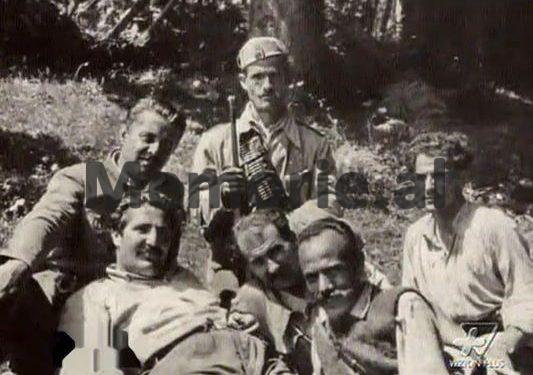
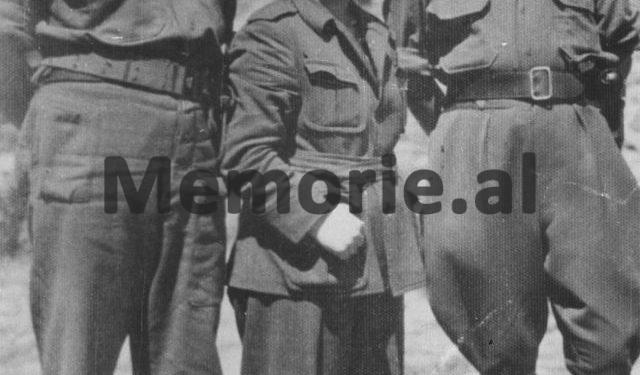
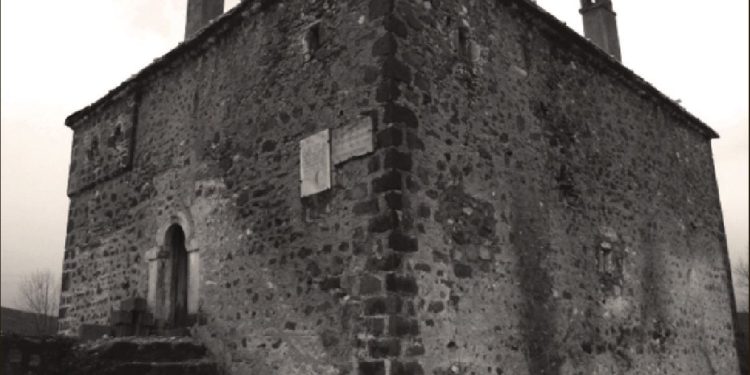
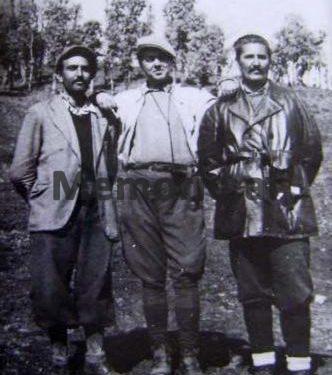
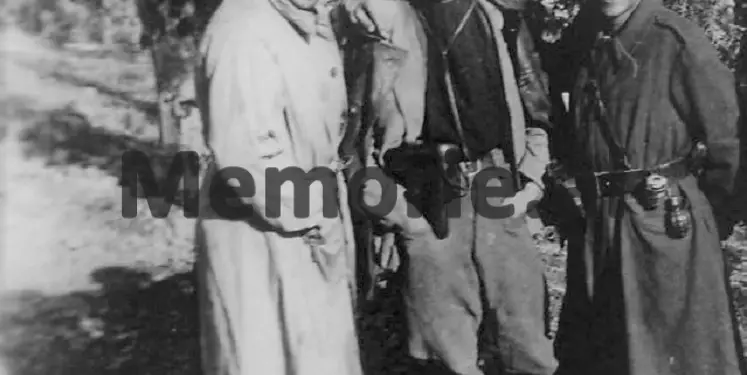
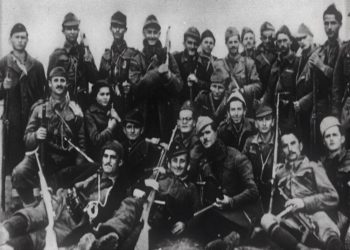
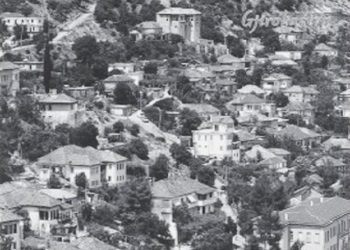
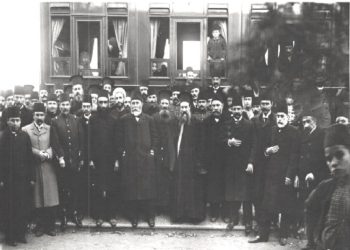
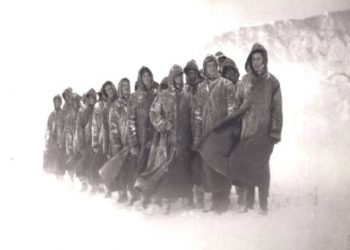

![“When the party secretary told me: ‘Why are you going to the city? Your comrades are harvesting wheat in the [voluntary] action, where the Party and Comrade Enver call them, while you wander about; they are fighting in Vietnam,’ I…”/ Reflections of the writer from Vlora.](https://memorie.al/wp-content/uploads/2025/06/admin-ajax-4-350x250.jpg)
